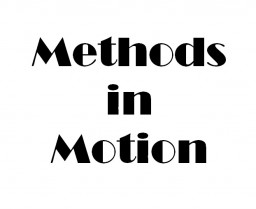 Banksy's take on Brexit
Banksy's take on Brexit
Alongside the election of Trump as President of the United States and the wider surge of far-right populism across Europe, Brexit has been interpreted as marking a shift away from the hegemony of liberalism towards more authoritarian and nationalistic politics. It appears that France, with the rise of the centrist Emmanuel Macron, has ‘escaped’ a far-right government for now. But the rise of Macron cannot simply be read as a victory of the political establishment (although it is in many ways), not least because Macron’s appeal largely lies in the fact that he claims to challenge ‘politics as usual’ by going beyond the left-right political cleavage. Also, Le Pen may have lost in the second round, but she did manage to secure a substantial 34% of the vote.
These recent political developments illustrate the demise of well-established and taken-for-granted political frameworks such as, for example, the fundamental distinction between the ‘left’ and the ‘right’ which for a long time constituted a key ideological anchor for politics. Another example is offered by the problematisation of the model of the ‘rational citizen’, a citizen who supposedly acts on the basis of self-interest, in line with a ‘neoliberal common sense’1. Contrary to this model, a new image of the citizen as an affectively charged subject (e.g. angry and frustrated for being ‘left behind’) is emerging. Another change that is altering the face of current politics is that experts and technocrats are increasingly deemed elitist and their authority in producing legitimate knowledge is questioned. As Janet Newman argued in her recent Methods in Motion (MiM) blogpost, 'Finding a Voice after Brexit', authenticity (who is speaking) presides over expertise (the authority of facts and evidence).
These are potentially fundamental changes and they raise the question of whether we are witnessing the emergence of a new political, ideological and cultural order. These ideas have been the inspiration for a CCIG based Open University seminar series, which is funded by the British Psychological Society (BPS). The seminars explore how citizenship is reconfigured in the era of Brexit using insights from social psychology and other social sciences.
In a previous contribution to the MiM blog, I considered the value of developing a social psychology of citizenship. In that post, I suggested that the specific contribution of social psychology is to examine citizenship in the everyday; to explore, in other words, the politics of ordinary and mundane political acts which are routinely seen as a background to the ‘real’ politics of the state.
Considering the implications of the current political climate, the seminar series serves as a platform for reflecting on the extent to which our conceptual and methodological tools are appropriate for capturing these new and emerging political realities. Are our existing concepts and methods sufficient or do we need to reconsider the ways we ‘do’ social psychology? The notion of emergence is useful here. We can no longer claim to study how things are, but we need to pay closer attention to the ways that things come into being, for example, new identities, new groupings, new activisms, new ideological and cultural formations. Our final seminar on 14 June will discuss the challenges and prospects for psychology and the social sciences in the era of Brexit.
This article was originally published on the Methods in Motion blog
More on Methods in Motion
The Methods in Motion blogs are by researchers linked to the Centre for Citizenship, Identities and Governance. The blogs represent their opinions emerging from research in progress, and do not necessarily represent the views of the Research Centre or Open University. You can discover more about Methods in Motion on the CCIG website.






Rate and Review
Rate this article
Review this article
Log into OpenLearn to leave reviews and join in the conversation.
Article reviews